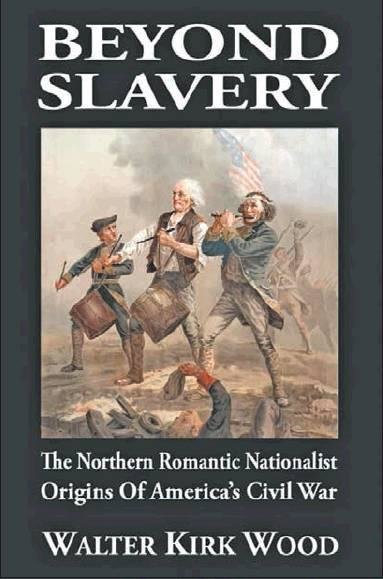Was slavery the true cause of the Civil War?
University of South Carolina professor Kirk Wood dug into the dark origins of America’s Civil War of 1861-1865 to determine if slavery was the only cause. In a new 83-page book, “Beyond …
This item is available in full to subscribers.
Subscribe to continue reading. Already a subscriber? Sign in
Get 50% of all subscriptions for a limited time. Subscribe today.
Please log in to continueNeed an account?
|
Was slavery the true cause of the Civil War?
University of South Carolina professor Kirk Wood dug into the dark origins of America’s Civil War of 1861-1865 to determine if slavery was the only cause. In a new 83-page book, “Beyond Slavery,” he reveals what his research found.
Q. What sparked your interest in the war’s causes?
A. My interest in the American Civil War as a research subject began in 1965 at Frederick College in Portsmouth, VA, my hometown.
Professor Robert Stapleton inspired me to pursue history as a career. In one of his classes, I selected John Taylor of Caroline (1754-1824) for a paper. He was a defender of states’ rights and agrarianism – whatever that was.
Later, at the University of South Carolina in Dr. Robert Weir’s seminar on the American Revolution, I discovered the clue to understanding John Taylor of Caroline. It came from Bernard Bailyn’s “The Ideological Origins of the American Revolution.”
The more I read about the English ideas that influenced America’s 18th century revolutionaries, the more they became those of John Taylor, Thomas Jefferson, James Madison and others of the early republic. They were English radical Whigs who saw their rights as Englishmen threatened by a government grown corrupt and arbitrary.
John Taylor of Caroline was not a Southern thinker. He was an American defending the original intentions of the founders and framers.
The Southern secession was a legitimate right of revolution derived from the Declaration of Independence of 1776. Only later, in the 19th century, was the Declaration reinterpreted to be more about the equal rights of all men.
Q. What compelled you to tackle it as a book?
A. “Beyond Slavery” is the introduction to Volume 1 of a larger 6-volume work. At my age, I wanted to get something in print to make my views available to the public.
The history of America from the Revolution to the Civil War is a story not perfectly or fully told. Beginning with a myth of democracy, the development of an America with liberal ideas of democracy, egalitarianism, abolitionism, socialism, feminism and more was interrupted by the South and its Northern allies intent on preserving slavery.
These “isms” came to America in the early 19th century with the Romantic Revolution. This is the untold history of 19th Century America.
The conflict was not between liberty and slavery but competing views of government, society, and politics.
Q. What were your objectives in writing it?
A. To present an interpretation of the Civil War beyond a misleading focus on slavery.
There would have been no civil war without slavery, but the conflict was about two different Americas at war.
After 1865, Americans really became a “People of Paradox” with conflicting beliefs about government, society, politics, and history that persist today.
Q. Who do you think of as your ideal readers?
A. At 83 pages, “Beyond Slavery” is designed to appeal to any literate adult who wants to know why there was a civil war so soon after the creation of the first American republic in 1776-1787.
Q. What do you want them to take away from reading it?
A. The central theme of Southern history was not slavery, race or Romanticism. It was the republicanism of America’s founders.
Conquest of the South was to rid it forever of the threat of disunion. As Lincoln’s and the Republicans’ highest priority, romantic nationalism triumphed over abolition.
With the Union victory, a new American history or “national myth” triumphed.
“Beyond Slavery” is available at Amazon.com. More about Dr. Wood and his work can be found at www.nullificationhistory.com .
Other items that may interest you










Comments
No comments on this item Please log in to comment by clicking here